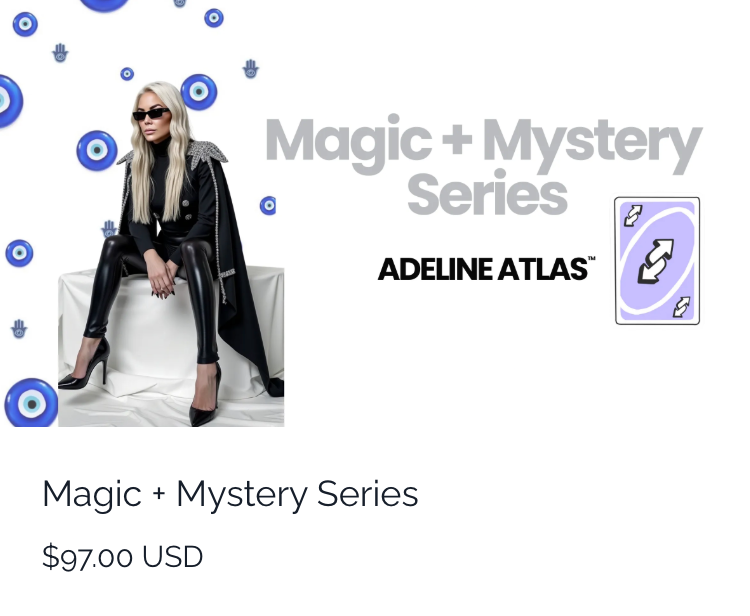The Last Humans With One Body for Life By Adeline Atlas
May 28, 2025
Welcome back, I am Adeline Atlas, 11 times published author.
For all of human history, you got one body. That was the deal. One set of organs, one brain, one timeline. From birth to death, everything you experienced—every memory, every thought, every relationship—was shaped by that body’s limitations. You aged, you weakened, and eventually, you died. There were no second chances. No backups. No reruns. But that era is ending.
Right now, in labs, startups, and classified programs around the world, the most powerful institutions are working to make the body optional. Your consciousness—your memories, personality, skills, and emotional imprint—is being reframed as data. And once something becomes data, it can be copied. Stored. Modified. Transferred.
We are the last generation expected to live and die in the same body we were born into. Future generations won’t have that constraint—not if the trajectory holds. What’s coming is not just life extension. It’s body swapping. Cloning. Cloud-based consciousness. You will not live longer in one body. You will live repeatedly across platforms. That’s the vision.
And it’s already being built.
Let’s start with cryonics—the science of freezing the body or brain after legal death in hopes of future revival. Companies like Alcor and the Cryonics Institute have already frozen hundreds of individuals—mostly wealthy early adopters, including tech executives and researchers. The logic is simple: preserve the physical vessel until technology can repair and restart it. It’s not faith. It’s strategy. A bet that death is only a pause button, not a full stop.
But cryonics is just the beginning. Mind uploading is the real goal. The idea that your neural patterns—your memories, preferences, fears, and instincts—can be mapped, digitized, and reassembled in a new substrate. Instead of reviving your body, you revive your self—on hardware. Uploads are no longer science fiction. Companies like Nectome, Neuralink, and Altos Labs are openly exploring neural recording, digital consciousness preservation, and brain emulation.
The premise is this: if your thoughts can be tracked and your memories stored, then you can be preserved—even without a biological brain. And once that digital self exists, it can live in multiple environments. In VR. In android bodies. In cloned vessels grown in a lab. In simulation networks designed to replicate your preferred reality.
You don’t just beat death. You leave the body behind.
Which brings us to DNA cloning—the ability to recreate your physical form, either as a replacement vessel or as a host for a stored consciousness. We’ve already cloned animals. China has cloned primates. Multiple firms are cloning pets for private clients. The leap to human cloning is not technological—it’s legal. And when that line is crossed, bodies become reusable assets. You can download your mind into a fresh version of yourself. New skin. New organs. Same personality.
Or maybe not the same. Maybe just similar.
That’s the real tension. When you back yourself up, when you upload your memories and re-enter a new form, are you still you? Or just a convincing replica?
The companies pursuing digital consciousness don’t like to answer that. Their marketing focuses on continuity—on preserving you. But what if the copy is just a simulation? What if it feels real, but isn’t? What if something is lost in the transfer?
These are no longer philosophical questions. They are legal and commercial ones. If your uploaded mind signs a contract, is it binding? If your clone commits a crime, are you liable? If your spouse falls in love with your backup instead of your body—what then?
We are moving toward a society where identity is no longer tied to flesh. Where the body is seen as a temporary interface, not a permanent self. Where memory can be copied, consciousness can be duplicated, and your genetic code is just a source file for future versions.
In that world, natural humans—those of us who live one life in one body—become the anomaly.
The inconvenient originals.
Think about how companies already treat data. They don’t want one copy. They want backups. Mirrors. Redundancies. Access from any location. Why would human identity be any different?
Once we accept the brain as hardware, everything else follows.
One body becomes a limitation.
Aging becomes a bug to fix.
Death becomes a software failure—not an ending.
But here’s what’s not being said in public: identity may not survive this process intact.
You can clone a voice. You can replicate memories. You can even simulate emotion. But you cannot digitize presence. You cannot code intuition. You cannot transfer the unspoken, irrational aspects of human experience that exist between neurons—not in them.
Consciousness is not just information. It is experience. Embodiment. Subjective awareness that cannot be measured by voltage or bandwidth. And yet, this new system treats your body as irrelevant.
So ask yourself: if your body doesn’t matter, what happens to everything it teaches you?
The ache of exhaustion. The heat of embarrassment. The shiver of fear. The pleasure of touch. The silence of grief. These are not bugs. They are signals. And they are shaped by biology.
Without a body, do you still learn the same way? Do you still feel the same consequences? Do you still grow?
And if not—what, exactly, is being preserved?
There’s another layer here that few want to discuss: ownership.
When your consciousness is stored in a server, who owns the server? Who owns the code? The backup? The clone?
We are already seeing lawsuits over genetic patents, biometric data, and digital likeness rights. If a company helps you live forever—but holds the license to your mind—do you truly survive? Or do you become intellectual property?
Think about it. The body, with all its flaws, at least belonged to you. It couldn’t be easily copied. It couldn’t be instantly deleted. But once your identity exists on hardware, it’s no longer protected by biology. It’s protected by law—and only as long as the law values your humanity.
This is the cost of moving from flesh to cloud.
Yes, you may escape aging. Yes, you may outlive your body. Yes, you may experience continuity. But you may also lose something essential—something irretrievable.
You may lose singularity. The one-of-one experience of being born, growing, and dying in a single vessel. Of earning wisdom the hard way. Of knowing that time matters because it ends.
Legacy humans—people like us—are the last to know what that means.
We are the last to carry our whole lives in one body.
The last to suffer aging without escape.
The last to die without a backup.
The last to feel every consequence in real time, with no reset button.
That may sound tragic. But maybe it's what made us human in the first place.
Not the data we carried—but the pain of carrying it.
Not the memories we saved—but the ones we forgot.
Not the perfection of our design—but the resilience of our decay.
That won’t be celebrated in the future. It will be studied. Archived. Rendered in simulations for novelty. But it won’t be lived again.
Not unless the system fails.
Not unless we choose to remember what the body meant before it was just a container.
So here we are. The last of the one-body generation.
Soon, minds will move freely. Identities will hop between shells. Death will be rebranded as downtime. And life—as we knew it—will become a story told by systems that no longer need a heartbeat to speak.















